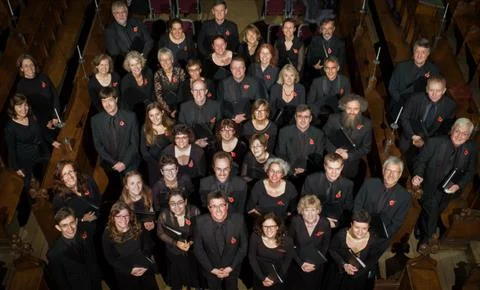SCHUBERT AND BEETHOVEN AT WEST ROAD
Rachel Roberts
Schubert and Beethoven or Beethoven and Schubert make a brilliant pair of linked works for the penultimate performance of the Cambridge Summer Music Festival. At the last minute the order of play flipped and Beethoven’s famous Septet came first. Quite right too. Beethoven wrote it decades before Schubert sprayed his spectacular gloss on what had become a firm concert hall favourite.
Richard Jenkinson Cello
From the tropical heat of the West Road foyer, the audience crowded into an ice cool auditorium for an amazing packed out performance of some of the world’s greatest music. Again another ticket super sell-out for the skilful organisers of this year’s Summer Music. It was a music -lovers’ heaven. The players for starters, were the Wigmore Soloists, an ensemble put together by hall director John Gilhooly reminiscent of that moment in 1966 when Eric Clapton Ginger Baker and Jack Bruce announced they were the best of the rock band crop. Last night’s audience was in the presence of the classical music eqiuvalent - and they sure appreciated every moment. The playing , it hardly needs emphasis, was exuberant, lush delightful and dramatic in turns, a concert of inspired artists not to be missed.
Tim Gibbs double bass
Ludwig van Beethoven’s Septet in Eb major was written in 1799 for the beloved mother of the nation Empress Maria Theresa, in an era where royalty was engaged in the arts, unlike our contemporary equivalents who appear to stop at horse racing and grouse shooting . Yet there was nothing courtly or political about the premier of this much loved piece. Adolph Bernard Marx ( most probably a relation to Karl) was there and remarked incisively the piece displayed‘ all sheer music which does not wish to be anything else , which desires nothing but to convey from the benevolent soul of the artist to our own, the pleasant indulgence in melodies and sounds and the elegance of gracious existence’. Which last night , he did again through the brilliance of the performers.
Early Wigmore Soloists in Situ
Schubert’s Octet in F major was written as an homage to Beethoven . He added a violin to the lineup but the shape of his composition is a delicate dedication to his admired master. In fact it was designed to twin with the earlier masterpiece using the same instruments.
It worked. Lyrical and strenuous it has the same uneven joy of Beethoven with a deeper melodic emphasis. Matthew Denton was a virtuosic hero on the violin. His slim spare athletic frame and contemporary stylish garb gave him the energy needed to stay the course, he literally sprang out of his seat from the start. Laura Samuel ( when she arrived in the Schubert section) was graceful and engaging, as she deepened the string section. Rachel Roberts; viola did likewise with the same grace and flow of emotional interplay - whilst the lovely cello of Richard Jenkinson completed the string section. His Uber-close contact with the other players made for a mellifluous river of unimpeded sound. Tim Gibbs on double bass lowered above the group, a central commander of a player, the sine qua non of the entire ensemble I suspect.
But despite the dazzling violin cadenzas which had the audience cheering, the warmth of the horn introduced the lovely clarinet with Peter Sparks who set light to the wind section ( a replacement for Michael Collins who had improbably tripped whilst chasing a sheep and had, poor chap, broken both wrists), along with the subtle genius of Robin O’Neil on bassoon deepening the feeling and warming the atmosphere into a blissful in parts, whole.
A lovely evening of unforgettable sound. An apposite farewell to the Cambridge part of the Festival . Until next year.










